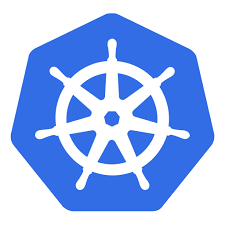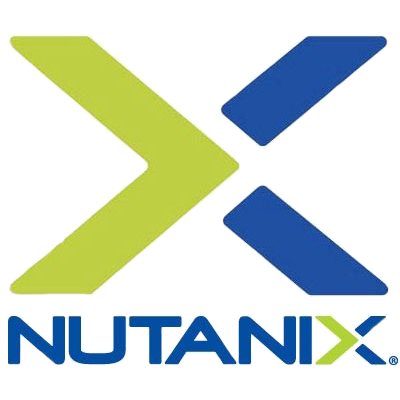CMD vs ENTRYPOINT?
Hai semuanya, di materi kali ini kita akan membahas lebih detail tentang CMD dan Entrypoint instruction yaitu diantaranya:
CMDas default parameter toENTRYPOINTENTRYPOINTto run in the foreground- Understand how
CMDandENTRYPOINTinteract - Cleanup
Ok kita langsung ja ke materi yang pertama
CMD as default parameter to ENTRYPOINT
Seperti yang kita ketahui jika kita menggunakan CMD instruction maka default command di terapkan pada image di running, dan jika kita menggunakan ENTRYPOINT maka default command sifatnya mandatory dijalankan ketika image di running. Apa yang terjadi jika kedua perintah CMD dan ENTRYPOINT digabungkan?
You can use the exec form of ENTRYPOINT to set fairly stable default commands and arguments and then use either form of CMD to set additional defaults that are more likely to be changed.
Jika dijalankan maka hasilnya seperti berikut:
➜ 07-dockerfile docker network create local_net
1e7c56e00839bd581a7c92044a4eaa9525da1da80442046e49128bf568f065e3
➜ 07-dockerfile docker run --name postgresdb `
>> -e POSTGRES_PASSWORD=password `
>> --network local_net `
>> -d postgres:12.6
e6bddf506087e23cd7de9317904f4b413ba7758410c6ffb99ae86e818057d6e4
➜ 07-dockerfile docker build -t dimmaryanto93/centos:0.9 .
[+] Building 17.1s (6/6) FINISHED
=> [internal] load build definition from Dockerfile 0.0s
=> => transferring dockerfile: 425B 0.0s
=> [internal] load .dockerignore 0.0s
=> => transferring context: 35B 0.0s
=> [internal] load metadata for docker.io/library/centos:7 0.0s
=> CACHED [1/2] FROM docker.io/library/centos:7 0.0s
=> [2/2] RUN yum install postgresql -y 16.6s
=> exporting to image 0.4s
=> => exporting layers 0.4s
=> => writing image sha256:419ccf1083b461ee6e98e0cdc667bc599009f6669bc030c7f63a735e5 0.0s
=> => naming to docker.io/dimmaryanto93/centos:0.9 0.0s
➜ 07-dockerfile docker run --rm `
>> --network local_net `
>> dimmaryanto93/centos:0.9
psql is the PostgreSQL interactive terminal.
Usage:
psql [OPTION]... [DBNAME [USERNAME]]
General options:
-c, --command=COMMAND run only single command (SQL or internal) and exit
-d, --dbname=DBNAME database name to connect to (default: "root")
-f, --file=FILENAME execute commands from file, then exit
-l, --list list available databases, then exit
-v, --set=, --variable=NAME=VALUE
set psql variable NAME to VALUE
-V, --version output version information, then exit
-X, --no-psqlrc do not read startup file (~/.psqlrc)
-1 ("one"), --single-transaction
execute command file as a single transaction
-?, --help show this help, then exit
Input and output options:
-a, --echo-all echo all input from script
-e, --echo-queries echo commands sent to server
-E, --echo-hidden display queries that internal commands generate
-L, --log-file=FILENAME send session log to file
-n, --no-readline disable enhanced command line editing (readline)
-o, --output=FILENAME send query results to file (or |pipe)
-q, --quiet run quietly (no messages, only query output)
-s, --single-step single-step mode (confirm each query)
-S, --single-line single-line mode (end of line terminates SQL command)
Output format options:
-A, --no-align unaligned table output mode
-F, --field-separator=STRING
set field separator (default: "|")
-H, --html HTML table output mode
-P, --pset=VAR[=ARG] set printing option VAR to ARG (see \pset command)
-R, --record-separator=STRING
set record separator (default: newline)
-t, --tuples-only print rows only
-T, --table-attr=TEXT set HTML table tag attributes (e.g., width, border)
-x, --expanded turn on expanded table output
-z, --field-separator-zero
set field separator to zero byte
-0, --record-separator-zero
set record separator to zero byte
Connection options:
-h, --host=HOSTNAME database server host or socket directory (default: "local socket")
-p, --port=PORT database server port (default: "5432")
-U, --username=USERNAME database user name (default: "root")
-w, --no-password never prompt for password
-W, --password force password prompt (should happen automatically)
For more information, type "\?" (for internal commands) or "\help" (for SQL
commands) from within psql, or consult the psql section in the PostgreSQL
documentation.
Report bugs to <pgsql-bugs@postgresql.org>.
ENTRYPOINT to run in the foreground
Sometime kita perlu menjalankan aplikasi di background, contohnya kali ini kita akan menjalankan service nginx docker image. Berikut contohnya seperti berikut:
Jika kita jalankan maka hasilnya seperti berikut:
➜ 07-dockerfile docker build -t dimmaryanto93/centos:0.10 .
[+] Building 69.3s (6/6) FINISHED
=> [internal] load build definition from Dockerfile 0.0s
=> => transferring dockerfile: 435B 0.0s
=> [internal] load .dockerignore 0.0s
=> => transferring context: 35B 0.0s
=> [internal] load metadata for docker.io/library/centos:7 0.0s
=> CACHED [1/2] FROM docker.io/library/centos:7 0.0s
=> [2/2] RUN yum install epel-release -y && yum install nginx -y && yum clean all 68.6s
=> exporting to image 0.5s
=> => exporting layers 0.5s
=> => writing image sha256:5b897e455e6fecee99004478289e006fd79c8815532b48d92bc85f4d6 0.0s
=> => naming to docker.io/dimmaryanto93/centos:0.10
➜ 07-dockerfile docker run --name webapp -d dimmaryanto93/centos:0.10
71ce523d116804696e516a1519e748e6c65cfe62f757b1d39a24bb3d8805073a
➜ 07-dockerfile docker exec webapp curl localhost
% Total % Received % Xferd Average Speed Time Time Time Current
Dload Upload Total Spent Left Speed
100 153 100 153 0 0 33023 0 --:--:-- --:--:-- --:--:-- 38250
<html>
<head><title>403 Forbidden</title></head>
<body>
<center><h1>403 Forbidden</h1></center>
<hr><center>nginx/1.16.1</center>
</body>
</html>
➜ 07-dockerfile docker top webapp
UID PID PPID C STIME TTY TIME CMD
root 21904 21881 0 21:54 ? 00:00:00 nginx: master process nginx -g daemon off;
999 21936 21904 0 21:54 ? 00:00:00 nginx: worker process
999 21937 21904 0 21:54 ? 00:00:00 nginx: worker process
Understand how CMD and ENTRYPOINT interact
Both CMD and ENTRYPOINT instructions define what command gets executed when running a container. There are few rules that describe their co-operation.
- Dockerfile should specify at least one of
CMDorENTRYPOINTcommands. ENTRYPOINTshould be defined when using the container as an executable.CMDshould be used as a way of defining default arguments for anENTRYPOINTcommand or for executing an ad-hoc command in a container.CMDwill be overridden when running the container with alternative arguments.
The table below shows what command is executed for different ENTRYPOINT / CMD combinations:
| No ENTRYPOINT | ENTRYPOINT exec_entry p1_entry | ENTRYPOINT [“exec_entry”, “p1_entry”] | |
|---|---|---|---|
| No CMD | error, not allowed | /bin/sh -c exec_entry p1_entry | exec_entry p1_entry |
| CMD [“exec_cmd”, “p1_cmd”] | exec_cmd p1_cmd | /bin/sh -c exec_entry p1_entry | exec_entry p1_entry exec_cmd p1_cmd |
| CMD [“p1_cmd”, “p2_cmd”] | p1_cmd p2_cmd | /bin/sh -c exec_entry p1_entry | exec_entry p1_entry p1_cmd p2_cmd |
| CMD exec_cmd p1_cmd | /bin/sh -c exec_cmd p1_cmd | /bin/sh -c exec_entry p1_entry | exec_entry p1_entry /bin/sh -c exec_cmd p1_cmd |
Cleanup
Seperti biasanya, setelah kita mencoba schenario di atas. sekarang kita bersih-bersih ya. berikut perintahnya:
For Bash script:
For Powershell script:
Yuk simak juga videonya,
Dan jika temen-temen belajar hal baru kali ini jangan lupa buat Like, Subcribe, dan Share ke temen kalian. Terimakasih!!!




